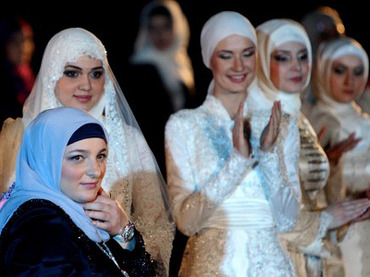Leila Aboulela’s The Kindness of Enemies, her fifth novel, explores the complexities of loyalty, religion and of nationalism, and the human yearning for belonging. The story is structured as two parallel narratives, a third person historical narrative set during the 19th century Caucasian war, and a contemporary narrative narrated in first person by Natasha Wilson, a thirty-something academic born to a Russian mother and a Sudanese father.
Natasha describes herself as “a failed hybrid, made up of unalloyed selves” resenting both her parents: “My Russian mother who regretted marrying my Sudanese father. My African father who came to hate his white wife. My atheist mother who blotted out my Muslim heritage. My Arab father who gave me up to Europe without a fight.”
Perhaps in an effort to bridge between her Russian heritage and the Muslim background she has disavowed, Natasha is drawn to researching the anti-Russian resistance during the Caucasian War and in particular the life of Imam Shamil, the leader of that resistance.
As the novel begins, Wilson is visiting one of her students, Oz (short for Osama), and his actress mother Malak, having learned that the Rajas are descendants of Shamil. They invite her to look through inherited papers and heirlooms, including the sword said to have belonged to Shamil himself.
When a blizzard forces Natasha to remain in the house longer than she had planned, she grows closer to the family, until the day Oz is arrested for suspicious research he has been conducting on weapons and jihad, and for emails he has sent to Natasha under the username “SwordofShamil.”
From there, the historical narrative picks up with Shamil’s son Jamaleldin being handed over as a hostage to the Russians in 1839. Years later, a Georgian noblewoman, Anna, is kidnapped by Shamil’s men in order to secure his son’s release. Much of the story is told from Anna’s point of view, as she tries to acclimatize herself to her new surroundings in Shamil’s household. This includes negotiating with Shamil’s wives, a jealous first wife with a “sharp temper and difficult ways,” an Armenian ex-hostage second wife, (based on an actual figure who chose to remain with Shamil rather than return to her family), and a younger third wife who grew up with Shamil’s children.
Like Fatima Mernissi’s representation of the harem in Dreams of Trespass, this household is depicted more as an extended family than the Orientalist vision. Even the stereotypical jealous shrew of a wife is shown finally to be a woman more interested in military strategy than being Shamil’s wife.
Aboulela spends some time on the dynamics of this household, including Shamil’s love for his disabled daughter, and the sorrow of Jamaleldin’s grandmother. However, the characters of the wives are never as fully developed as Anna herself, and we are never allowed to see their point of view. Instead we see it through the outsider eyes of Anna, who tells us that “polygamy disgusted her but at such close quarters it was interesting.”
We also see the harem through Shamil’s eyes but since Shamil is represented sympathetically, the wives become an extension of that representation, their actions, friendly or unfriendly, good or bad, becoming evidence of or contrasting to Shamil’s seemingly inherent goodness. Because of the mythical quality the narrative bestows on the central figure, it is difficult to empathize with him.
Though there are several jumps in time and place, the historical story has more of a complete narrative arc than Natasha’s story. In fact, in parts The Kindness of Enemies seems to be a historical novel about jihad in the Caucasus that is interrupted by the 21st century narrative, which sometimes reads like an immigrant story and sometimes like a campus novel.
Aboulela spends some time on the conflict of interest Natasha faces when she is critiqued for not having reported Oz as a possible risk for radicalization: “According to the guidelines, a student who was “vulnerable to radicalization” would have symptoms of regression, a hankering for an idealized past, a misguided belief in authenticity”.
Oz is reminiscent of Tamer in Aboulela’s earlier novel Minaret –another confused university student mentored by the older protagonist. There is a similar contrast between the idealistic student and the more worldly Natasha here. For example, when Oz informs her that Shamil appears in dreams “only in those who have achieved a certain spiritual level,” she reflects that “he made it sound like a video game”. This exchange highlights the debate over religion in the novel, how it is used and abused, and how the hierarchical structures within religious communities can create an atmosphere of coercion – such as the disapproval Oz faces from some in the Muslim community for “allowing” his mother to be an actress. These representations of different forms of religiosity leads us up to the tentative decision on Natasha’s part to become Malak’s student and learn about Sufism.
As an ambitious actress, a mother struggling to help her confused idealistic son, and a committed Sufi Muslim, Malak is perhaps the most interesting representation of a Muslim woman in the novel. The narrative plays out some of the tropes of Sufism as “the good Islam,” though we are reminded that many of the jihadi movements during the 19th century were led by Sufi figures. In fact, for Malak the irony is that “the leader of one of the longest and most significant jihads in modern history would if he were alive today be a supporter of the War on Terror… Al Qaeda was a modern phenomenon with no patience for Shamil’s traditional spirituality and utter contempt for the choices he made at the end of his career.”
As this quote indicates, the political messaging in the book is often overt, which is perhaps inevitable in a narrative that in part is about being Muslim in a post 9/11 world. However, Natasha’s voice is believable when she is contemplating her place in this world, especially later in the novel, when she is drawn back to Sudan by her father’s death. This forces her out of her resistance to thinking about her past, having “worked too hard to fit in. to be here and now.” She considers herself to have “taken a shortcut to the exit” like students she taught who “couldn’t wait to bury their dark badly dressed immigrant parents who never understood what was happening around them or even took an interest, who walked down high streets as if they were still in a village, who obsessed about halal meat and arranged marriages and were so impractical, so arrogant as to imagine their children would stay loyal.”
Natasha’s conflicted identity brings a contemporary lens to the ambiguous in-between positions of the former hostages, Anna and Jamaleldin. The Kindness of Enemies is ultimately about “staying loyal” and what that means, weaving multilayered stories about belonging both in the 21st century narrative and in the historical narrative as Anna, Jamaeledin and Natasha attempt to find their place in life, experiencing a “yearning for an identifiable place” where they would belong even “in a small way, faintly, marginally, tentatively.”



1 Comment
[…] Crossposted at Muslimah Media Watch […]